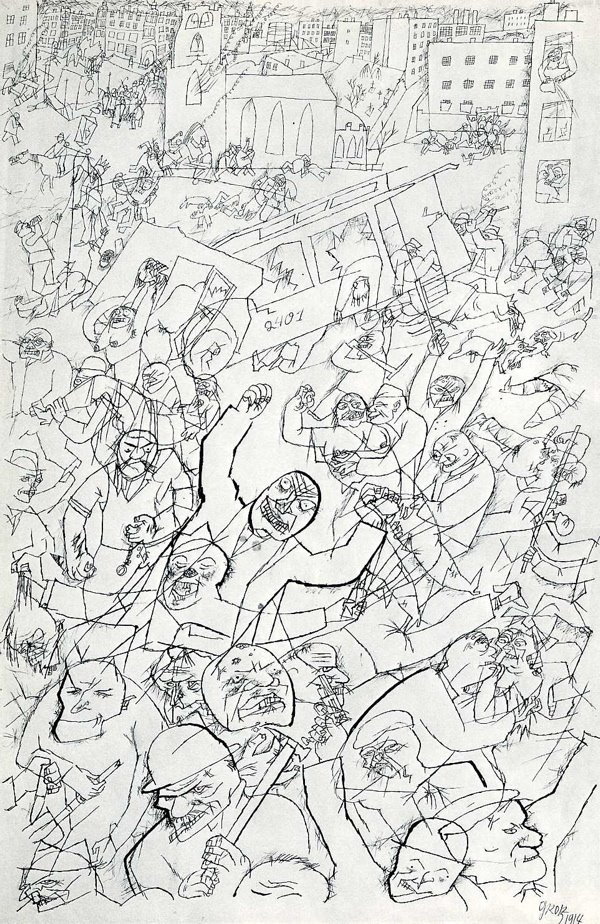The web is abuzz with chatter about academic freedom today.
John Leo at the Washington Post hates all left wing radical professors in the humanities, and champions the work of groups that monitor their efforts to indoctrinate the youth.
A curtain has been drawn around the academy, inside of which the protection of certain favored ideas trumps intellectual exchange and the search for truth.I am reluctant to quote any more of the piece than this because it's little more than an advertisement for a group that monitors intellectual discourse for signs of partisanship. But his position is clear enough: the hate-mongering professors in the ivory tower hate America and will do anything to enforce and spread their leftist ideology.
Michael Bérubé isn't so sure. In an article at Inside Higher Education, Bérubé discusses how wrong this view of the academy is. He's part of a group entitled the American Association of University Professors’ Committee A on Academic Freedom and Tenure, which has drafted a statement on “Freedom in the Classroom" about the nature of classroom discussions in higher education and intellectual freedom:
This Bérubé piece is excellent, and a much needed reminder (for me) about the coming show-down between legislators and academics about the nature of higher education. Additionally, it is potent reminder of the way the media portrays us in the academy--as craven hippies whose sole aim is to indoctrinate the weak-mined fools that enter our classrooms with the foul excrescence of Communist ideology.The statement takes up the right’s four most prominent complaints about professors’ classroom demeanor: “(1) instructors ‘indoctrinate’ rather than educate; (2) instructors fail fairly to present conflicting views on contentious subjects, thereby depriving students of educationally essential ‘diversity’ or ‘balance’; (3) instructors are intolerant of students’ religious, political, or socioeconomic views, thereby creating a hostile atmosphere inimical to learning; and (4) instructors persistently interject material, especially of a political or ideological character, irrelevant to the subject of instruction.” In its discussion of “indoctrination,” for example, the statement argues that: “It is not indoctrination for an economist to say to his students that in his view the creation of markets is the most effective means for promoting growth in underdeveloped nations, or for a biologist to assert his belief that evolution occurs through punctuated equilibriums rather than through continuous processes. Indoctrination occurs only when instructors dogmatically insist on the truth of such propositions by refusing to accord their students the opportunity to contest them. Vigorously to assert a proposition or a viewpoint, however controversial, is to engage in argumentation and discussion — an engagement that lies at the core of academic freedom.”
This, too, should go without saying — but because it doesn’t, conservative ideologues (whose names are just at the tip of my tongue) have been able to mount campaigns against individual professors and entire campuses based on the most specious of assumptions. In North Carolina, for instance, a group calling itself the Committee for a Better North Carolina complained bitterly that the University of North Carolina had assigned Barbara Ehrenreich’s Nickel and Dimed to incoming students. Do such people really need to be told, in the words of the AAUP statement, that “it is fundamental error to assume that the assignment of teaching materials constitutes their endorsement”? Do we really need to explain in so many words that “classroom discussion of Nickel and Dimed in North Carolina could have been conducted in a spirit of critical evaluation, or in an effort to understand the book in the tradition of American muckraking, or in an effort to provoke students to ask deeper questions about their own ideas of poverty and class”? Yes and yes.
I suppose it's never occurred to the talking heads that the worst place to indoctrinate people is college, and the best is preschool. It's not a coincidence, after all, that every American child learns the pledge of allegiance at age 4.
[By the way, the academy was scrutinized in the 1980s by a group called Truth in Academia (I think) for questioning the justice of the American war on Nicaragua. Some things never change.]



No comments:
Post a Comment